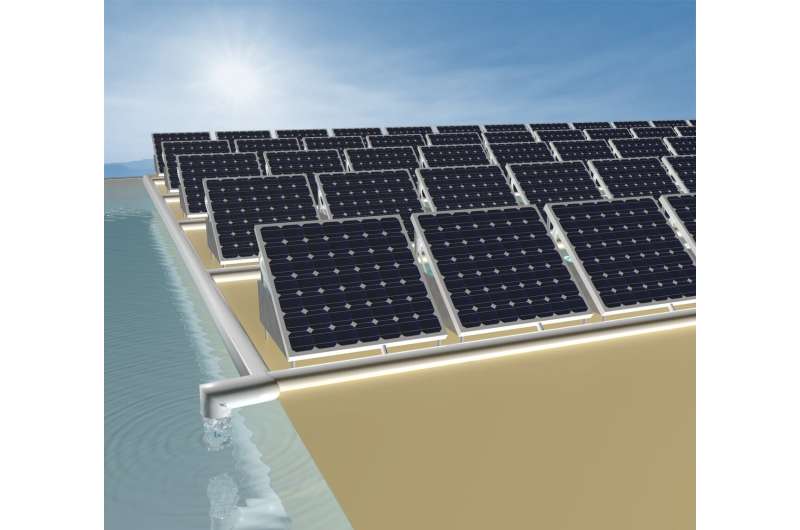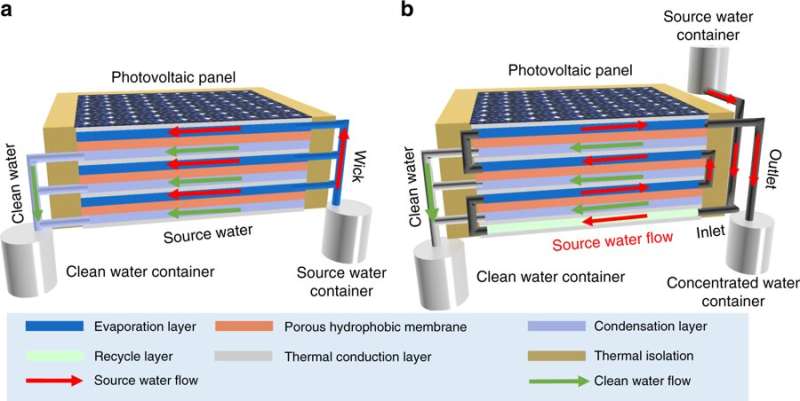July 10, 2019 report
Capturing heat wasted in solar panels for use in distilling clean drinking water

A team of researchers at King Abdullah University of Science and Technology has developed a way to use waste heat from solar panels to distill clean drinking water. In their paper published in the journal Nature Communications, the researchers describe how they modified traditional solar panels to allow for purifying saltwater.
Millions of people, mostly in developing countries, struggle to obtain drinking water. To address this problem, scientists have been looking for ways to capture water from the air, or to clean water that is not fit for consumption. In this new effort, the researchers have modified existing solar panel technology to allow for simultaneous purification of saltwater for drinking.
The work involved adding boxed layers beneath a traditional solar panel—they were used to purify saltwater using distillation. The boxes comprise a three-stage distillation unit. Waste heat from the solar panel falls through to the first box, which uses the heat to warm saltwater—as it evaporates, it passes through a membrane and then condenses, yielding clean drinking water. Heat generated from the first box is passed on to the second box, which undergoes the same process to produce clean drinking water. And heat from the second box is passed on to the third, where more water is processed.
Testing of the modified solar panels showed them capable of purifying ordinary saltwater and seawater. In addition to removing dirt and other particles, the distillation process also removes dangerous heavy metals. Testing also showed the modified panels were able to purify up to three times as much as conventional solar stills. The researchers note also that the additions below the solar panels did not reduce their efficiency—they were still approximately 11 percent efficient.

The researchers suggest their modified solar panels could be used in places where people have easy access to saltwater, such as the ocean, to provide clean drinking water. They further suggest that if future solar panels included distillation capabilities, it is possible that they could produce up to 10 percent of the water consumed in the world.
More information: Wenbin Wang et al. Simultaneous production of fresh water and electricity via multistage solar photovoltaic membrane distillation, Nature Communications (2019). DOI: 10.1038/s41467-019-10817-6
© 2019 Science X Network


















